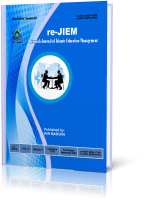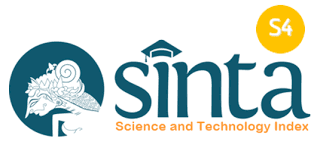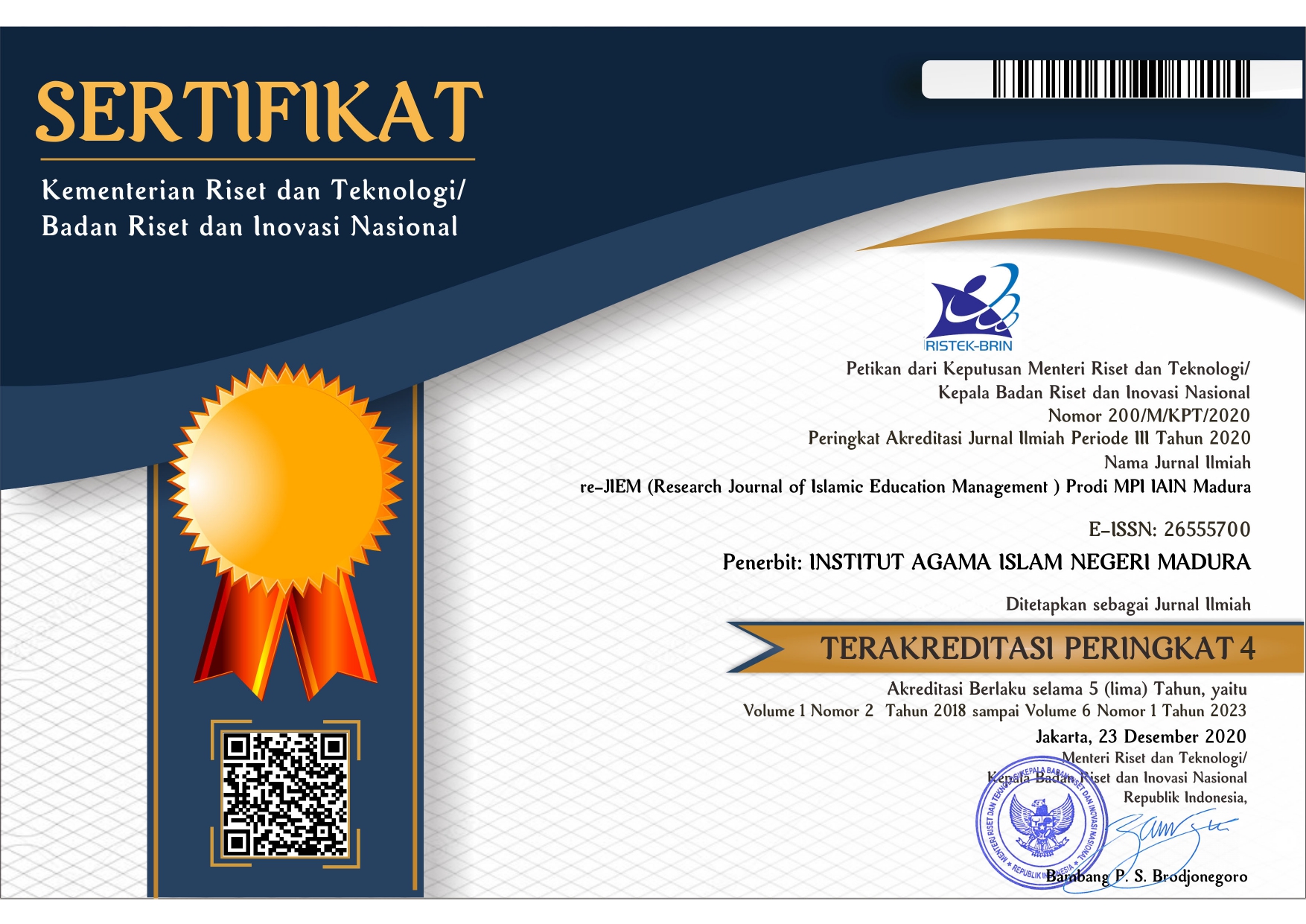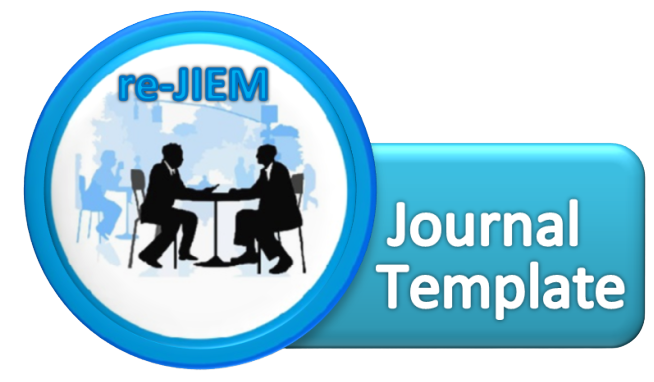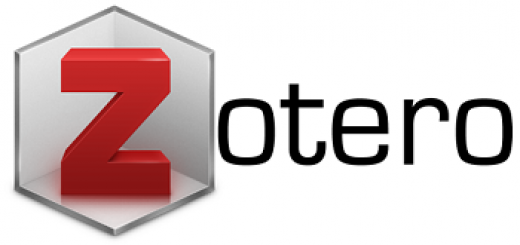THE APPROACH OF ISLAMIC EDUCATION MANAGEMENT IN FACING GLOBAL CHALLENGES
 Abstract views: 258
,
Abstract views: 258
,
 PDF ENGLISH downloads: 186
PDF ENGLISH downloads: 186
Abstract
This research aims to explore appropriate strategies for Islamic education organizations in facing global challenges. The globalization of education has brought major changes in education systems throughout the world, while technological advances, the challenges of multiculturalism, and global competition are some of the key issues faced by Islamic education organizations in facing the dynamics of educational globalization. Therefore, the management of Islamic education organizations must have the skills to face these challenges and maintain high quality in Islamic education. This research utilized a library research approach. Researchers conducted a literature review, observing writings and sources related to the research issue. Data collection was carried out by searching for sources from various media such as books, journals, and related research. Data obtained from literature observations were analyzed using an interactive qualitative approach. The data analysis process includes steps such as data collection, data reduction, data presentation, and conclusion. The conclusion that can be drawn from this research is that an effective approach to facing global challenges involves improving quality, innovation, cooperation, understanding the challenges of multiculturalism, and increasing human resource capacity. These steps are expected to help the management of Islamic education organizations maintain the quality and relevance of education in the face of changes in the globalization of education.
Downloads
References
A. M. Khair,. “The Importance of Collaboration Between Islamic and Western Educational Institutions,.” Journal of Education and Learning, 5, no. 3, (2016): 110–19.
Abdul Kadir, Muhammad Nasir. “Pengaruh Penggunaan Teknologi Informasi Dan Komunikasi Terhadap Kualitas Pembelajaran Di Sekolah,.” " Jurnal Ilmiah Pendidikan Teknologi Dan Kejuruan, 5, no. 2 (2018): 120-121.
Abdullah, N. “Developing an Inclusive Curriculum: The Case of International Islamic University Malaysia.” International Journal of Islamic Education, 1(1), (2019): 1-15.
Ahmad Husaini. “Ahmad Husaini, ‘Strategi Peningkatan Kualitas Pembelajaran Pada Sekolah Islam Berbasis Kurikulum 2013,.’” Al-Hikmah: Jurnal Studi Islam Dan Sosial, 13, no. 1 (2019): : 80.
Ajizah, Imroatul. “Urgensi Teknologi Pendidikan : Analisis Kelebihan Dan Kekurangan Teknologi Pendidikan Di Era Revolusi Industri 4.0.” istighna 4, no. 1 (2021).
Al-Jarf, R. “Technology in Islamic Education: A Framework for Integrating Technology in Saudi Arabia.” Journal of Educational Technology Development and Exchange (JETDE), 10(1), (2017): 1-14.
Al-Maamari, F. A. “Globalization and Its Effects on Islamic Education: An Analytical Study.” Journal of Education and Practice, 12(20), (2021): 48-57.
Al-Omari, A. A. “The Importance of International Accreditation in Higher Education Institutions.” European Scientific Journal, 11(9), (2015): 111-123.
“Al-Quran. Terjemahan Oleh Abdullah Yusuf Ali. Jakarta: Pustaka Amani, 2010.,” n.d.
Al-Zoubi, M. S. “Teacher Professional Development Programs and Their Impact on Teacher Efficacy: An Empirical Study from Jordan.” International Journal of Instruction, 12(2), (2019): 71-86.
Astomo, Putera. “Politik Hukum Penyelenggaraan Sistem Pendidikan Nasional Yang Responsif Di Era Globalisasi.” Masalah-Masalah Hukum 50, no. 2 (April 30, 2021): 172–83. https://doi.org/10.14710/mmh.50.2.2021.172-183.
Azhar et al. “Pengembangan Kurikulum Berbasis Karakter Di Sekolah Menengah Kejuruan,".” Jurnal Pendidikan Teknologi Dan Kejuruan, 23, no. 3 (2017): 192–93.
Bryer, J., Chen, B. “Investigating Instructional Strategies for Using Social Media in Formal and Informal Learning. ,.” The International Review of Research in Open and Distributed Learning 13(1), (2012): 87-104.
Budiman, Ferry. “Pengaruh Kepemimpinan Transaksional Terhadap Stres Kerja Dan Motivasi Kerja Serta Dampaknya Pada Kinerja.” Perspektif. Yayasan Jaringan Kerja Pendidikan Bali, 2021. https://doi.org/10.53947/perspekt.v1i1.56.
Budimansyah, Dasim. “Peningkatan Mutu Pendidikan Melalui Penguatan Partisipasi Masyarakat.” Educationist 2, no. 1 (2008).
Campbell, W. K., Twenge, J. M. “Associations between Screen Time and Lower Psychological Well-Being among Children and Adolescents: Evidence from a Population-Based Study.” Preventive Medicine Reports, 15, 100918., 2019.
Chen, H. C., Kuo, Y. L. “The Impact of Curriculum Quality on Students’ Academic Achievement in Vocational High Schools.” Journal of Education and Learning, 7(3), (2018): 70-81.
Dessemontet, R. S., Kozleski, E. B., Mainzer, H. “Inclusive Education in the Global South: New Directions for Research and Practice.” International Journal of Inclusive Education, 22(3), (2018): 255-269.
Dian Permana2, Agus Yosep Abduloh, Hisam Ahyani1. “Pendidikan Islam Dalam Lingkup Dimensi Sosio Kultural Di Era Revolusi Industri 4.0.” Fitrah: Journal of Islamic Education Vol. 1 No. 1 (2020).
Fawziyah et al. “The Use of Augmented Reality Technology in Islamic Education.” International Journal of Emerging Technologies in Learning 14, no. 5 (2019): 81–83.
Hadi, M. S, Setiawan, A.,. “Competitive Advantage Strategies for Islamic Education Institutions in Indonesia.” Dinasti International Journal of Digital Business Management, 2(3), (2021): 468-478.
Hamdani, Hamdani, Hadi Sunaryo, and Pardiman Pardiman. “Analisis Dampak Work from Home Terhadap Stres Kerja, Adaptive Performance Dan Kinerja Pegawai.” IQTISHODUNA. Maulana Malik Ibrahim State Islamic University, 2022. https://doi.org/10.18860/iq.v18i1.13004.
Hammond,. “Teacher Education around the World: What Can We Learn from International Practice?.” European Journal of Teacher Education 40(3), (2017): 291-309.
Hargreaves, A. “Globalization and Education: From Colonization to Neoliberalism and Beyond. ,.” Globalizations 15(1), (2018): 1-16.
Harun, H., Yasin, R. M. “Enhancing Students’ 21st-Century Skills through the Implementation of STEM Education.” Journal of Turkish Science Education, 16(2), (2019): 1-13.
Hussain, S. “Inclusive Education: Challenges and Opportunities for Muslim Students.” International Journal of Humanities and Social Science Research, 6(1), (2017): 43-53.
Isa, M. F. M, Al-Tal, A., Nor, M. R. M. “Innovation in Islamic Education: Strategies and Implementation.” International Journal of Innovation, Creativity and Change, 9(10), (2019): 1-17.
Ismail,. “Kerjasama Industri-Perguruan Tinggi Dalam Menyiapkan Lulusan Yang Siap Kerja,.” Jurnal Pendidikan Ekonomi Dan Bisnis, 4, no. 1 (2016): 45-46.
Khalid, A., Fathi, M. “The Impact of Technology on Islamic Education: Opportunities and Challenges in Saudi Arabia.” Journal of Education and Practice, 10(19), (2019): 55-63.
M. Abdul-Jabbar. “Islamic Education and Interfaith Understanding: The Need for a Comprehensive Approach,.” Islam and Civilisational Renewal, 5, no. 2, (2014): 304–19.
Matuchniak, T, Warschauer, M. “New Technology and Digital Worlds: Analyzing Evidence of Equity in Access, Use, and Outcomes.” Review of Research in Education, 34(1), (2010): 179–225.
Miles M. B. A., Huberman M., Saldaña J. “Qualitative Data Analysis: A Methods Sourcebook.,” Third Edition. California: SAGE Publications, Inc., 2014.
Moleong, Lexy J. “Metodologi Penelitian Kualitatif,” 320. Bandung: Remaja Rosdakarya, 2007.
Musawah, S. “Inclusivity in Islamic Education Curriculum.” International Journal of Islamic Thought, 20 (2021): 41-56.
Muslihudin,. “Pengembangan Kurikulum Berbasis Kompetensi Dalam Perspektif Pendidikan Islam,.” Jurnal Edukasi Islami, 5, no. 1 (2017): 24–25.
Najib, A. K. “Pendidikan Multikultural Di Lembaga Pendidikan Islam.” Al-Intaj: Jurnal Pendidikan Dan Pengajaran Islam, 3(1), (2019): 37-49.
Nashir, M. “Islamic Education Management in the Era of Technology: Ethics and Security Perspective.” Al-Ta Lim Journal, 26(1), (2019): 48-54.
Norhayati, Norhayati. “Kompensasi, Stres Kerja, Kepuasan Kerja Dan Komitmen Organisasi.” Jurnal Manajemen Bisnis. Universitas Pendidikan Nasional, 2021. https://doi.org/10.38043/jmb.v18i2.2935.
Nurhayati, N. “Partisipasi Aktif Alumni Dalam Program Pengembangan Karir Di Perguruan Tinggi.” Jurnal Pengabdian Masyarakat 6(1) (2021): 33–41.
Nurhayati, Zainal. “, ‘Kerjasama Antara Perguruan Tinggi Dalam Penyelenggaraan Program Sertifikasi,.’” Jurnal Pendidikan Teknik Elektro, 10, no. 2 (2021): 90.
Priatmoko, Sigit. “Memperkuat Eksistensi Pendidikan Islam Di Era 4.0.” TA‟LIM : Jurnal Studi Pendidikan Islam Vol.1 No.2 Juli 2018 (2018).
Rahman, F. “Cybersecurity Challenges in Education during the COVID-19 Pandemic.” Journal of Educational Technology Systems, 49(3), (2020): 365-375.
S. Suryani,. “Promoting Respect for Cultural Diversity in Islamic Education,.” Journal of Education and Practice, 8, no. 19, (2017): 108–13.
Salsabila, Unik Hanifah, Putri Fauziatul Fitrah, and Astuti Nursangadah. “Eksistensi teknologi pendidikan dalam kemajuan pendidikan islam abad 21.” JURNAL EDUSCIENCE 7, no. 2 (December 28, 2020): 68–77. https://doi.org/10.36987/jes.v7i2.1913.
Sawarjuwono, T., Kadir, A. P. “Intellectual Capital: Perlakuan, Pengukuran Dan Pelaporan (Sebuah Library Research).” Jurnal Akuntansi Dan Keuangan, 5(1) (2004): 35–57.
Sholeh, Muh Ibnu. “Transparansi Dan Akuntabilitas Dalam Membangun Citra Positif Melalui Manajemen Pendidikan Yang Berkualitas.” Tadbiruna 3, no. 1 (August 31, 2023): 43–55. https://doi.org/10.51192/tadbiruna.v3i1.622.
Sholeh, Muh Ibnu, Prim Masrokan Mutohar, and Agus Eko Sujianto. “Development of Entrepreneurial-Oriented Transformative Islamic Educational Institutions: A Global Perspective.” Tarbawi: Jurnal Keilmuan Manajemen Pendidikan Vol. 9, No. 01, (2023).
Sholeh, Muh Ibnu, Ahmad Tanzeh, and Imam Fuadi. “Kepemimpinan Profetik (Study Proses Peningkatan Lembaga Pendidikan Islam di Indonesia).” JMPI Jurnal Manajemen, Pendidikan, dan Pemikiran Islam 1, no. 1 (2023).
Siddiqui, S., Adeeb, M. A. “Internationalization of Islamic Higher Education: Exploring the Challenges and Opportunities.” Journal of Education and Practice, 10(26), (2019): 116-121.
Siswanto,. “Peningkatan Kualitas Pendidikan Melalui Kerjasama Antar Lembaga Pendidikan,.” Jurnal Ilmiah Pendidikan Kewarganegaraan, 5, no. 2 (2018): 21-22.
Suradi, A. “Pendidikan Berbasis Multikultural Dalam Pelestarian Kebudayaan Lokal Nusantara Di Era Globalisasi.” Wahana Akademika Volume 5 Nomor 1, (2018): 111–30.
Tambak, Ahmad Budi Sakti, and Yani Lubis. “Potensi Pendidikan dan Teknologi Dalam Meningkatkan Kualitas Sumber Daya Manusia Di Desa Ulumahuam.” Jural Edukasi non formal VO. 3. NO.2 (2022).
Tsauri, Sofyan. “Manajemen Kinerja,” 2. Jember: STAIN Jember Press, 2014.
Umar, Mardan, and Feiby Ismail. “Peningkatan Mutu Lembaga Pendidikan Islam (Tinjauan Konsep Mutu Edward Deming dan Joseph Juran).” Jurnal Ilmiah Iqra’ 11, no. 2 (February 26, 2018). https://doi.org/10.30984/jii.v11i2.581.
Waston, Waston, and Miftahudin Rois. “Pendidikan anak dalam perspektif psikologi islam (studi pemikiran prof. Dr. Zakiyah daradjat).” Profetika: Jurnal Studi Islam 18, no. 1 (June 6, 2017): 27–35. https://doi.org/10.23917/profetika.v18i1.6298.
Williamson, A. C., Tarabishy, N., Tamim, R. “Challenges Facing Islamic Schools in the United States: Competing with Public Schools in the Global Market. .” Journal of Research in International Education, 11(2), (2012): 105–17.
Wiyono, B., Hendri, H., Rofaida, Y. “Evaluasi Program Pengalaman Kerja Di Luar Negeri.” Jurnal Pendidikan Ekonomi, 13(1) (2020): 59-68.
Yulianti, Nurhadi. “Peningkatan Motivasi Dan Prestasi Belajar Siswa Melalui Program Belajar Mandiri,".” Jurnal Pendidikan Indonesia, 3, no. 1 (2014): 45–46.
Yulistira sadela. “peran mediasi stres kerja pada pengaruh peran ganda terhadap kinerja karyawan (Studi Penelitian Pada Karyawan PT. Bank Negara Indonesia Cabang Pontianak Kalimantan Barat).” Equator Journal of Management and Entrepreneurship (EJME). Tanjungpura University, 2019. https://doi.org/10.26418/ejme.v7i4.31872.
Yunus, Nur Rohim. “Penerapan Syariat Islam Terhadap Peraturan Daerah Dalam Sistem Hukum Nasional Indonesia.” Hunafa:JurnalStudiaIslamika 12, no. 2 (2015).
Zainuddin, Y, Hasan, S. S. “Collaborative Online Learning in Islamic Education: A Systematic Review.” Journal of Educational Technology & Society, 24(1), (2021): 166-181.
Zugaide, H. A, Alzahrani, A. I. “The Use of Electronic Resources in Teaching and Learning among Students of Higher Education in Saudi Arabia.” Journal of Education and Learning, 9(4), (2020): 231-242.
Copyright (c) 2023 Ulvia Fatkhurin Fuad, Muh Ibnu Sholeh, Sokip, Asrop Syafi'i, Eko Agus Suwandi, Nur' Azah, Dwi Andayani

This work is licensed under a Creative Commons Attribution-ShareAlike 4.0 International License.
Authors who publish with this journal agree to the following terms:
Authors retain copyright and grant the journal right of first publication with the work simultaneously licensed under a Creative Commons Attribution-ShareAlike 4.0 International License that allows others to copy and redistribute the material in any medium or format with an acknowledgment of the work's authorship and initial publication in this journal and also allows to remix, transform, and build upon the material for any purpose, even commercially with contributions under the same license as the original.
Authors are able to enter into separate, additional contractual arrangements for the non-exclusive distribution of the journal's published version of the work (e.g., post it to an institutional repository or publish it in a book), with an acknowledgment of its initial publication in this journal.
Authors are permitted and encouraged to post their work online (e.g., in institutional repositories or on their website) prior to and during the submission process, as it can lead to productive exchanges, as well as earlier and greater citation of published work.


